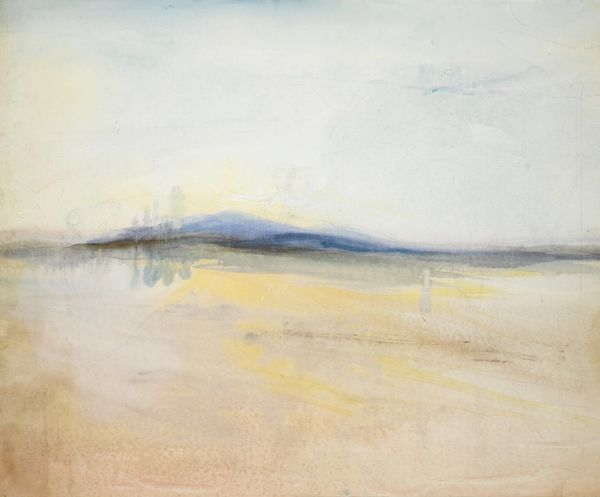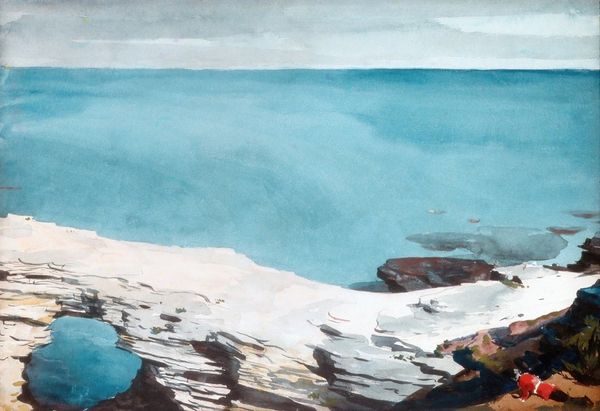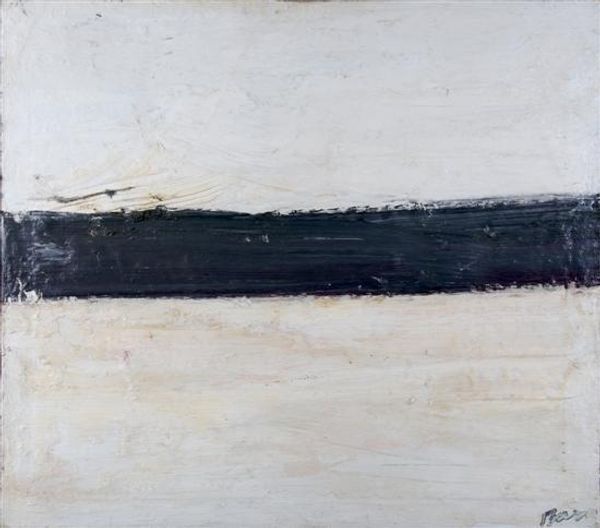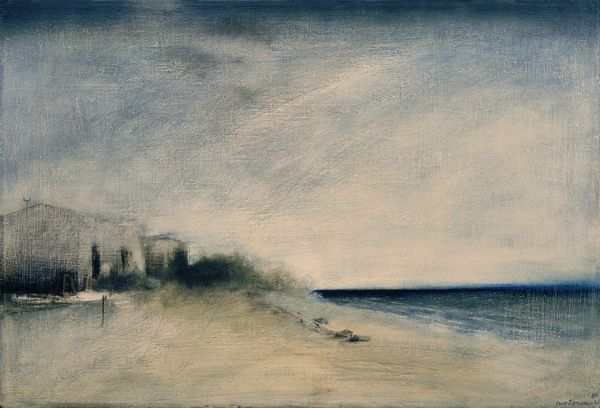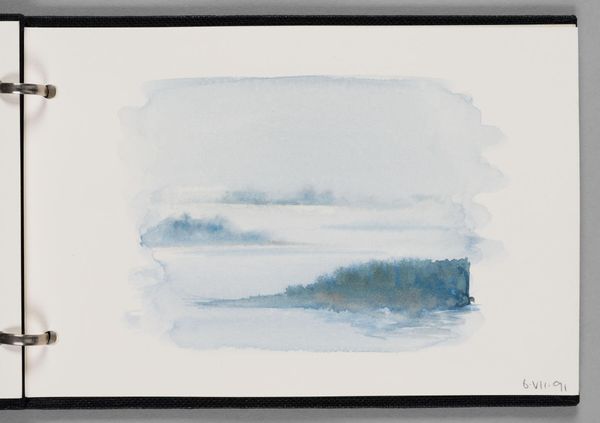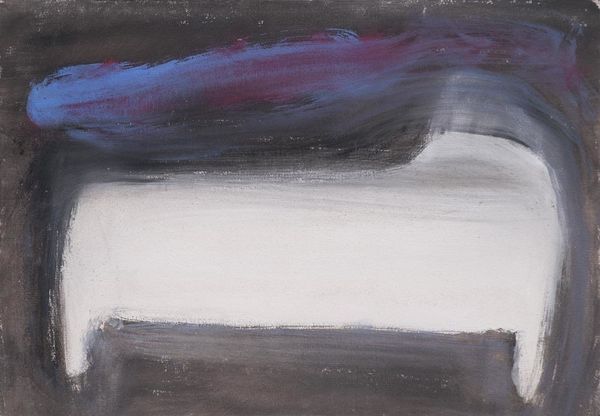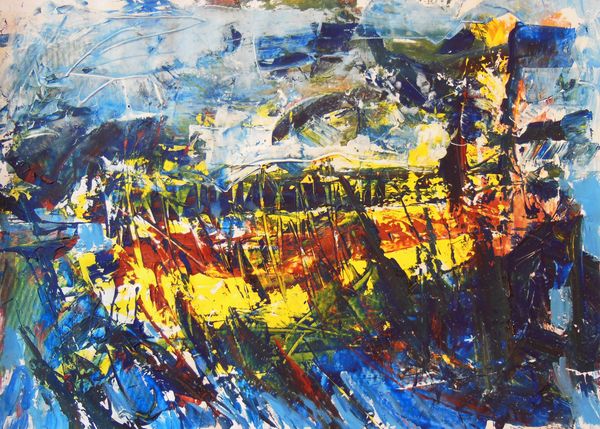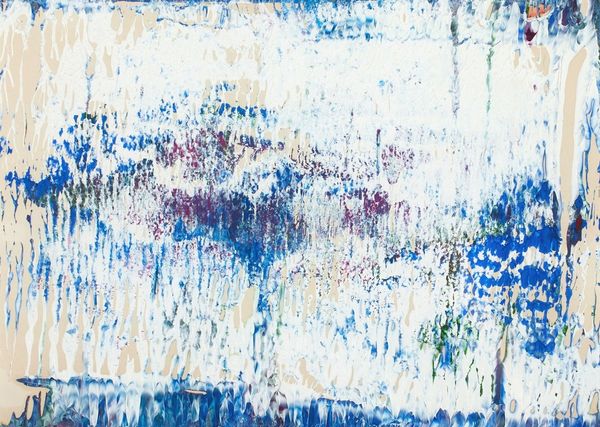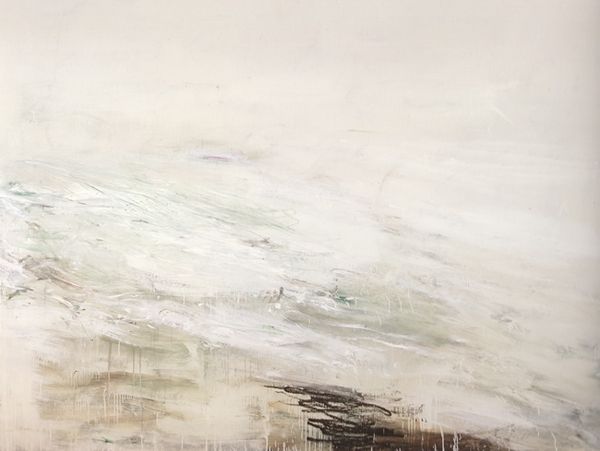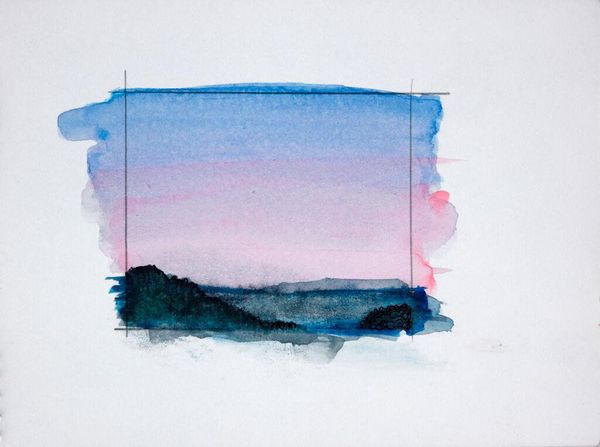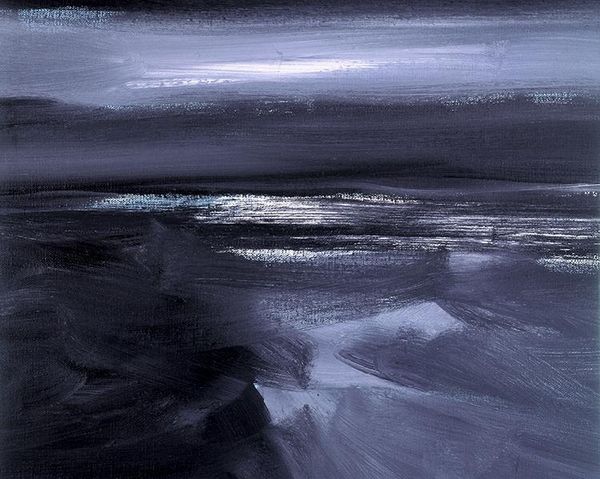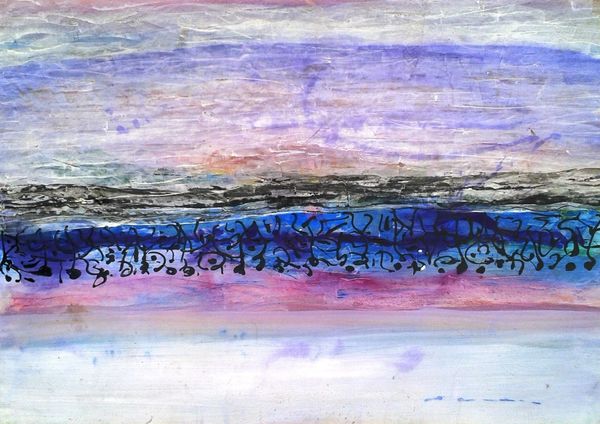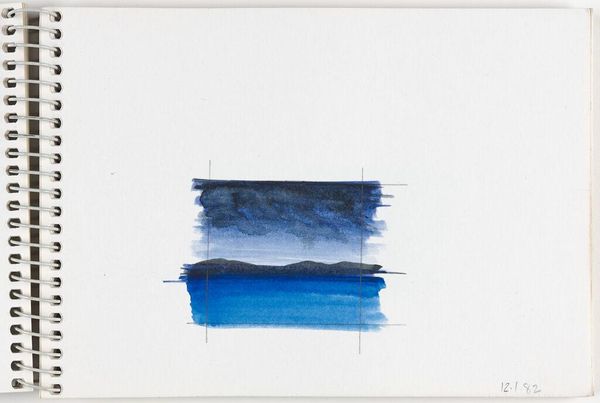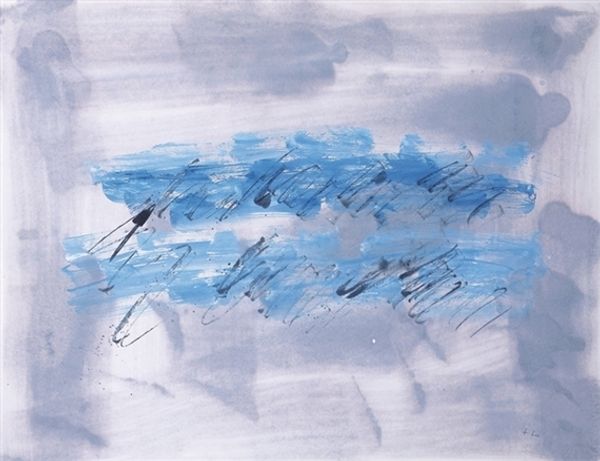
painting, acrylic-paint
#
abstract-expressionism
#
abstract expressionism
#
painting
#
landscape
#
acrylic-paint
#
abstraction
Copyright: Eugene Brands,Fair Use
Editor: This is Eugene Brands' "Blauwe wolk," painted in 1959 with acrylic on some kind of board. The title translates to "Blue Cloud," and looking at the painting, it feels incredibly calming, almost meditative, like staring at a vast, empty sky. What do you see in this piece? Curator: It strikes me as an interesting commentary on post-war optimism tinged with lingering anxieties. Abstract Expressionism, particularly in Europe after World War II, became a language to express the inexpressible trauma and hope for the future. The cloud form could represent the unknown, the potential for both creation and destruction. How do you see the use of a single color impacting that interpretation? Editor: That's a fascinating point! Focusing solely on blue makes it feel more like an exploration of emotion, rather than a literal depiction of a cloud. It almost feels like an attempt to purify or simplify a complex feeling. Do you see that connection in the historical context? Curator: Absolutely. Consider the historical backdrop – the Cold War, the ever-present threat of nuclear annihilation. The almost brutal simplicity here – the single blue form against a pale ground – speaks volumes about anxieties artists and the public grappled with daily. The absence of details allows the viewer to project their fears and hopes onto the work. How do you see this simplicity relating to landscape art as a genre? Editor: It’s definitely not a traditional landscape. Maybe Brands is taking the core feeling of being in nature and stripping away everything else. I guess the focus on raw emotion links the artistic act to a political moment in time, maybe trying to address an unspeakable fear. Curator: Exactly! It pushes us to examine how historical events affect abstract aesthetics. The 'Blue Cloud' isn't just a pleasing image; it's a historical artifact reflecting the complex social, historical, and political landscape of the time. Editor: I’ll definitely look at abstract expressionism differently now, not just in terms of aesthetics but through its historical and cultural connections. Thanks for helping me appreciate the deeper narrative of this painting.
Comments
No comments
Be the first to comment and join the conversation on the ultimate creative platform.
